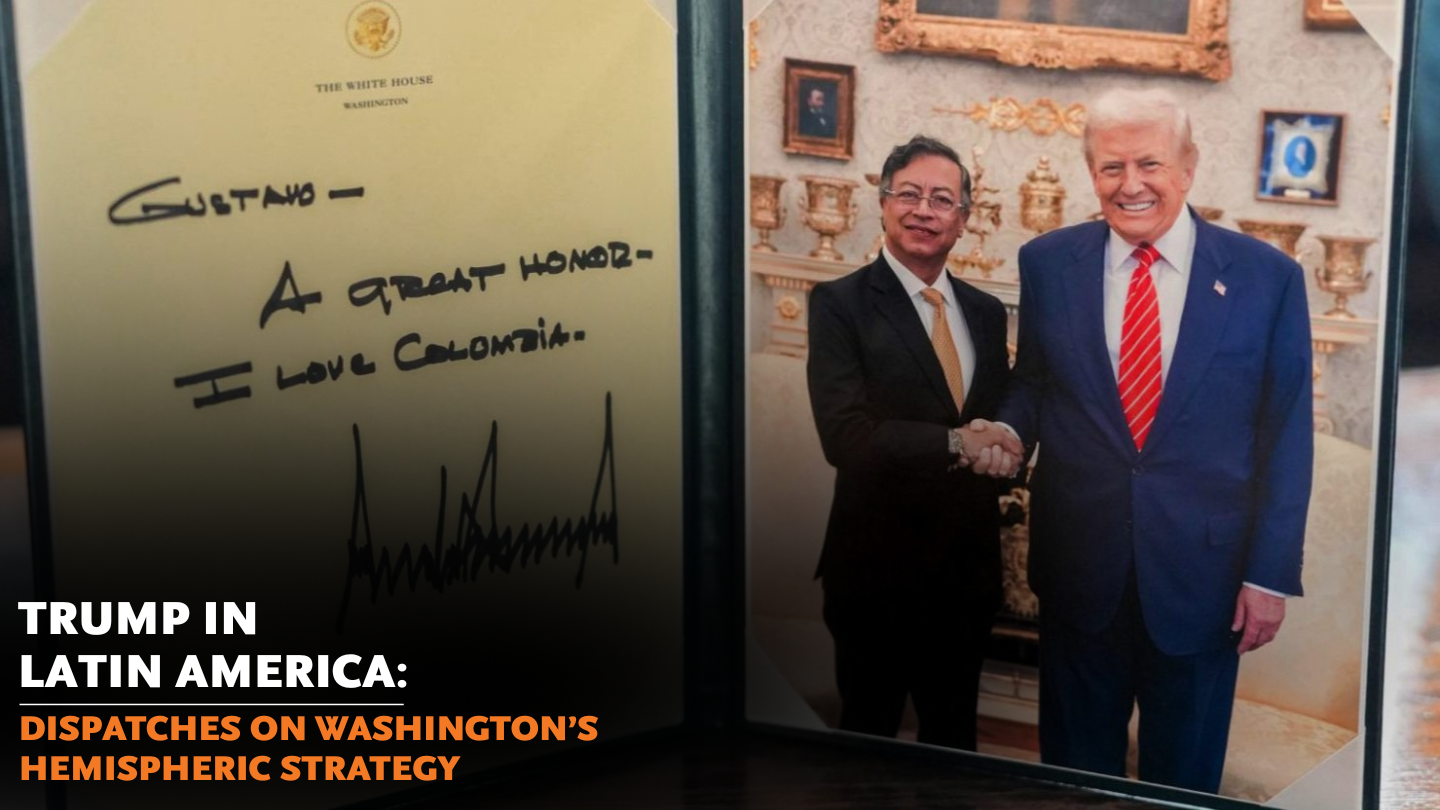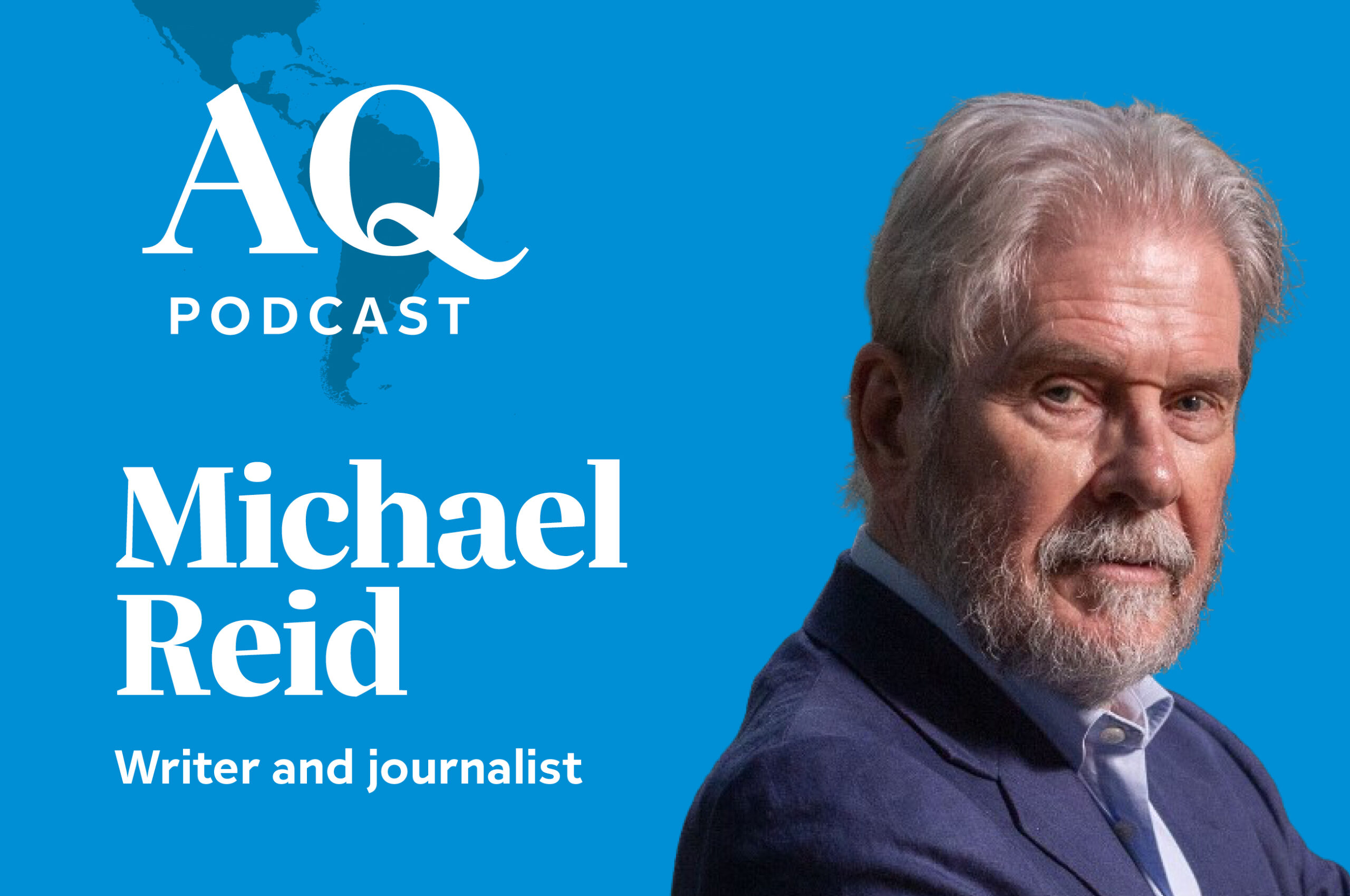38th Washington Conference: "The Globalization of the Americas"
38th Washington Conference: "The Globalization of the Americas"
The Council of the Americas held the 38th Annual Washington Conference on the Americas on May 6 and 7, drawing together a selection of the region's most influential officials—including the presidents of the United States and Panama—to address the most pressing policy issues affecting the Western Hemisphere. Read more and access program summaries, as well as audio, from the conference.
The Council of the Americas held the 38th Annual Washington Conference on the Americas on May 6 and 7, drawing together some of the most influential officials from across the Western Hemisphere. During a day-long session of discussions at the U.S. State Department, the presidents of the United States and Panama as well as several cabinet members addressed the most pressing policy issues affecting the Americas.
View summaries of and listen to audio of remarks by conference speakers:
- President George W. Bush
- President of Panama Martín Torrijos
- U.S. Secretary of State Condoleezza Rice
- Peru's Minister of Finance Luis Carranza Ugarte
- U.S. Commerce Secretary Carlos Gutierrez
- U.S. Representative Gregory Meeks
- Canada's Minister of Industry Jim Prentice
- Colombian Minister of Defense Juan Manuel Santos
- U.S. Trade Representative Susan Schwab
- U.S. Assistant Secretary Thomas Shannon
- U.S. Education Secretary Margaret Spellings
- IMF Managing Director Dominique Strauss-Kahn
The conference topic—“The Globalization of the Americas”—brought the issue of trade policy into focus, with all speakers emphasizing the importance of open markets in the region. Keynote speaker President George W. Bush called trade “the most effective way” to promote prosperity and called for passage of U.S. bilateral trade agreements with Colombia and Panama. U.S. Secretary of State Condoleezza Rice supported the president, describing trade policy as “vital to national competitiveness.”
Yet she also warned that free trade policy is a “consensus under fire.” The delay of implementation of the U.S.-Colombia trade agreement by U.S. Congress serves as an example of a “retreat from out values.” President Bush noted that the past weekend marked “an unfortunate milestone” when tariffs on U.S. exports to Colombia reached roughly $1 billion since the signing of the free-trade agreement (FTA) 17 months ago. “With our economy slowing, it seems like to me that we should be doing everything possible to open up new markets for U.S. goods and services,” said the president. He urged Congress to pass the agreement, both to assist the 8,000 small and mid-sized firms exporting to Colombia as well to support Colombian President Álvaro Uribe’s commitment to security.
A number of other speakers joined President Bush in voicing support for the U.S. deal with Colombia. “To turn away from Colombia now is a huge mistake,” said U.S. Assistant Secretary Thomas Shannon. Congressman Gregory Meeks (D-NY)—who, at the conference’s opening reception, was awarded the 2008 COA Chairman’s Award for his support of bilateral trade deals—stressed that “Colombia does deserve an FTA."
Since Uribe became president of Colombia in 2002, kidnappings have dropped by 83 percent and murders by more than 40 percent. U.S. Commerce Secretary Carlos Gutierrez called Uribe’s accomplishments “nothing short of miraculous” and warned that “not passing Colombia would go down as one of our biggest foreign policy mistakes in our hemisphere.” Colombian Defense Minister Juan Manuel Santos discussed how increased security in his country has made it one of the world’s most attractive emerging economies. He also warned of a “new specter haunting Latin America”—neo-populism, which will serve as a hemispheric challenge for the next U.S. president.
Speakers noted the importance of free trade to boosting economic security and democracy. “One would be hard pressed to find somebody who can make the case that closing the U.S. economy will create a single job,” said U.S. Trade Representative Susan Schwab, noting that trade accounted for 40 percent of the 2007 U.S. GDP. Focusing on the success of North American collaboration, Canada’s Minister of Industry Jim Prentice described the results of the North American Free Trade Agreement (NAFTA) as “overwhelmingly positive.” He noted that trade among NAFTA members is expected to reach $1 trillion in 2008, and he warned against the bureaucratic inefficiencies at the border that hamper even deeper trade ties. Peru’s Minister of Finance Luis Carranza Ugarte explained that, along with structural reforms, trade liberalization has been crucial to reducing poverty in his country. “Only through poverty reduction will we be able to consolidate our democratic system.”
Carranza also noted that rising food prices serve as one of the “biggest dangers” affecting poor countries and described Peru’s plans to offer incentives for increased agricultural production to head off a crisis in his country. Panama’s President Martín Torrijos cautioned that regional advances to combat poverty could be rendered “useless” in the face of food price inflation. Emphasizing that “good governance is the key for development,” he urged hemispheric governments to innovate to meet current challenges.
IMF Managing Director Dominique Strauss Kahn outlined recommendations to stave off negative effects of a global economic downturn: increased focus on value-added exports, boosting the region’s manufacturing output, and combating poverty. In a discussion focused on educational exchange throughout the region, U.S. Education Secretary Margaret Spellings called for increased collaboration. The more governments and higher education institutions work together to foster exchange, said Spellings, “the better prepared we will all be to respond to the challenges of our changing world.”








